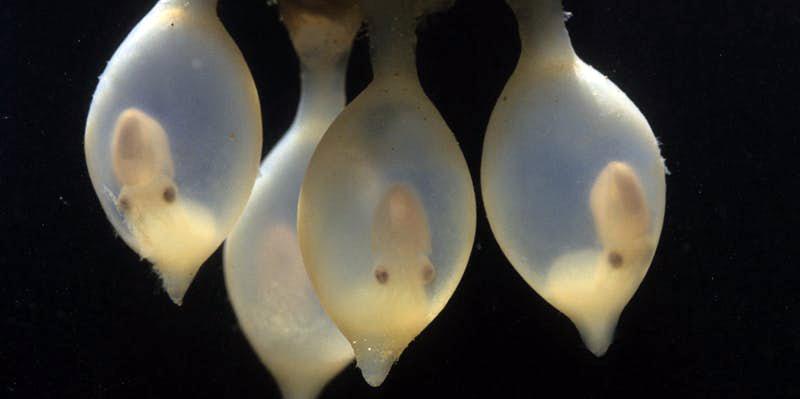Ecological selection of Giant Australian Cuttlefish

Plunge into research about the Giant Australian Cuttlefish.
You’ll be detecting genomic signals of diversifying ecological selection as a pretext to speciation.
Study systematics, biogeography, phylogeography & molecular ecology
The genomic age allows us to explore issues of adaptation and population history in non-model organisms. Many issues around conservation approaches can utilise population history and genetic diversity to focus management options in innovative ways.
Data at the genomic scale also allows dissection of recent speciation events and understanding of the micro-evolutionary basis of speciation can also lead to the identification of landscape features that promote diversity.
Projects focus on a range of iconic marine and terrestrial animal species with the potential to inform conservation approaches or understand organismal responses to environmental gradients.
In addition to genetics-based projects, there are opportunities with Dr Kyle Armstrong that will provide skills in 3D geometric morphometrics and bioacoustics analysis.
In situations of closely-related bat species, the analysis of 3D models of skull anatomy derived from micro-CT x-ray scans can help quantify differences in shape in the context of both ecological speciation and the constraints imposed by the need to maintain the integrity of echolocation signals.
In biodiversity surveys, there is an increasing reliance on large-scale acoustic recordings that allow investigators to recognise more species of frogs, birds, and bats more efficiently and with less cost.
But off-the-shelf software falls well short of providing reliable outputs.
Together with Professor Langford White of the School of Electrical and Electronic Engineering and Professor Ian Reid of the university’s Institute for Machine Learning, there is opportunity to explore the efficacy of alternative ways of signal processing, feature extraction and signal classification for expedient, robust, non-invasive and broad-scale acoustics-based biodiversity surveys.
Supervisors
- Dr Kyle Armstrong
- Research area: Systematics, biogeography, phylogeography and molecular ecology
- Recommended honours enrolment: Honours in Evolution and Palaeobiology
